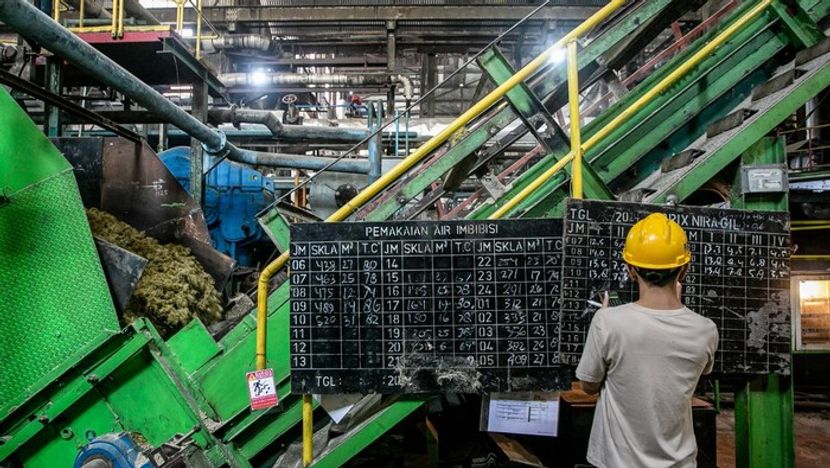
According to the National Industrial Information System (NIIS) 2025 H1, 1,641 companies are building new production facilities with an investment of 803.2 trillion dong, which is expected to absorb 3.05 million laborers.Manufacturing production showed expansion in June 2025, with the Industrial Confidence Index at 52.50, suggesting that Super 50% industrial firms improved their performance from the previous month and that demand for labor increased. The Industrial Confidence Index for export-oriented industries and domestic market-oriented industries stood at 52.19 and 51.32 respectively, both showing expansion, implying that demand, production and employment in the manufacturing sector were better than in the previous period. A spokesman for the Ministry of Industry was optimistic about the prospects for employment absorption in the manufacturing sector, as the Government introduced the Trade Minister's Decree, the Revised Import Liberalization Policy, which lasted for only two months but has already galvanized the domestic industry, especially those oriented towards the domestic market, and is expected to control the number of low-priced imports and enhanceutilization of productionand employment absorption capacity of labor-intensive industries; the Ministry of Industry has completed coordination with the relevant ministries on the draft regulation of the Minister of Industry on credit for labor-intensive industries, which will be issued in parallel with the regulation of the Ministry of Finance, and approximately 2,722Labor-intensive industrial enterprisesIt is expected to benefit from this and help enterprises to avoid layoffs and improve production utilization and product competitiveness.
Indonesia's two historic trade agreements with the United States and the European Union have stimulated the vitality of domestic industry, especially export-oriented industries, and some companies that were originally oriented towards the domestic market have begun to market their products to the U.S. and European markets; the increase in export demand and production utilization will help to secure employment and absorb more labor, and will also open up a larger European market for Indonesia's export industries, while at the same time attracting domestic market-oriented industries to export business; the Ministry of Industry will increase the supply of manufacturing products to government demand through the reform of localized content (TKDN) management. The reform will make TKDN calculations easier, faster and more efficient, and high TKDN scores will increase opportunities for domestic products in government procurement, strengthen demand for local industry, and increase production utilization and employment absorption. Some 3.2 million Indonesians are currently employed in domestic industries that supply products to the government, a number that is expected to rise further after the reforms. He dismissed the notion that the manufacturing sector is being hit by massive layoffs, arguing that the issue of layoffs should be viewed objectively based on accurate data, comprehensive analysis and explanations, saying that the manufacturing sector is continuing to grow. During his visit to Japan, the Minister of Industry directly asked the head of Japan's automotive industry to avoid layoffs while conducting efficiency optimization in line with Indonesia's economic growth drive. The Ministry of Industry called for a balanced release of information and analysis to maintain the investment environment, especially in the domestic manufacturing sector, to avoid unnecessary social panic.
© Copyright notes
The article is copyrighted and should not be reproduced without permission.


